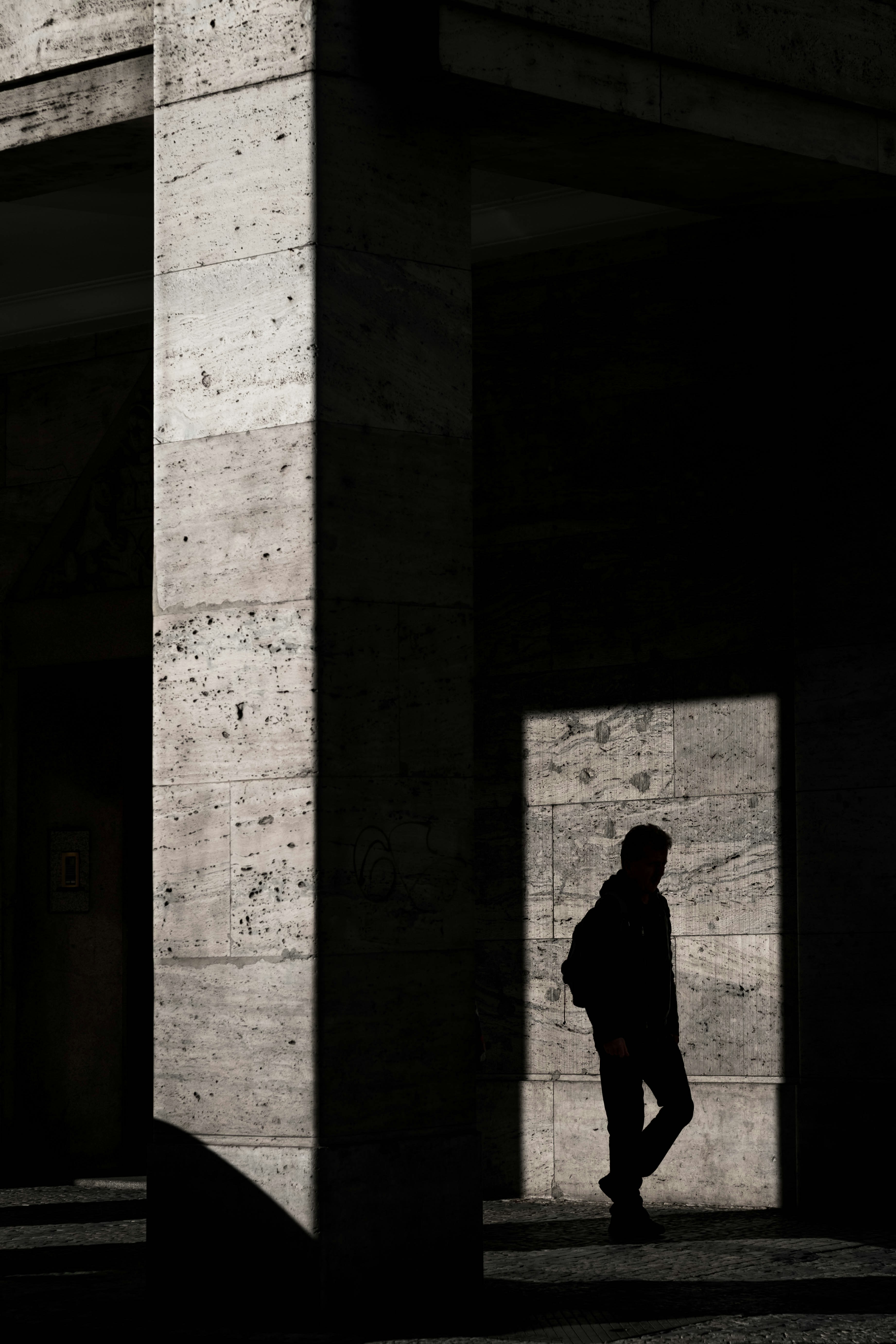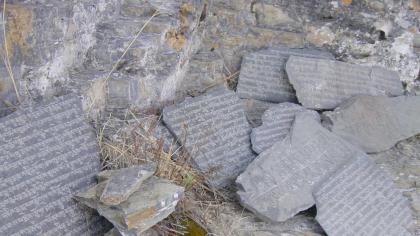July 20, 2025|כ"ד תמוז ה' אלפים תשפ"ה Pinchas 5785 - How Good Are Our Tents
Print ArticleThis week, we read the story of Pinchas and his reward for standing up in the face of the immoral behavior of Klal Yisrael with the women of Moav. But the truth is that this whole story is just the second phase of a story which began last week. And it is to this part of the story I would like to turn to this morning.
As we know, Balak, the King of Moav is terrified about Am Yisrael coming to conquer them. And so, he hires Bilaam, the prophet of the nations of the world, to curse the Jewish People.
And when Bilaam eventually arrives to curse the Jewish people, Balak takes him to three different locations: Bamos Baal, Sdei Tzofim, and then to Rosh HaPe'or.
It's in this final place that the Bilaam blesses Am Yisrael with a phrase we know well:
(פּרק כד פּסוק ה) מַה טֹּבוּ אֹהָלֶיךָ יַעֲקֹב מִשְׁכְּנֹתֶיךָ יִשְׂרָאֵל:
How good are your tents Yaakov, your sanctuaries, Israel.
The mefarshim offer several explanations as to what exactly Bilaam is praising in this moment:
- Rashi notes that the word Ohel very often refers to places of worship. The Mishkan is called the "Ohel Moed". And, of course, the Mishkan is also a place of worship. Therefore, many explain that this is a praise of the Mishkan and future Beis HaMikdash that the Jewish People would eventually build in Eretz Yisrael.
- Seforno offers a slightly different answer: He writes that Yaakov Avinu is called the "Ish tam Yoshev Ohalim" because he sat and learned. Therefore, he argues that the Ohalecha refers to Batei Midrashos, places of learning, whereas Mishkenosecha refers to shuls.
- Gemara Bava Basra 60a: The word Ohel, tent, here is not meant to be allegorical, rather it is meant literally. In fact, the text tells us that before blessing Am Yisrael, Bilaam looked at Am Yisrael:
(פּרק כד פּסוק ב) וַיִּשָּׂא בִלְעָם אֶת עֵינָיו וַיַּרְא אֶת יִשְׂרָאֵל שֹׁכֵן לִשְׁבָטָיו וַתְּהִי עָלָיו רוּחַ אֱלֹקים:
Bilaam looked up and he saw the Jewish people camped by their tribes
And says the gemara, he saw two things:
- He saw that each shevet was in its own place, one didn't spill over into the other.
- He saw that that every tent was situated on purpose in a way that the door of one tent never lined up with the door of the tent across the way, so that one couldn't see into the tent of his or her neighbor.
And with this, Bilaam declares: Ma Tovu Ohalecha Yaakov, Mishkenosecha Yisrael. How good are your actual tents and Mishkenosecha, the very thoughtful way you choose to camp.
Rav Shimshon Raphael Hirsch explains why this third explanation is the most compelling, based on the context. As we noted earlier, Balak took Bilaam to three different places, which was clearly very thoughtfully mapped out:
The first was Bamos Baal -- Baal is the general Canaanite deity, who was believed to control material power. Here, Balak was trying to get Bilaam to curse the people physically and financially.
They then went to Sdei Tzofim -- "The field of seers and watchmen." This was a place to determine whether Am Yisrael had people of intellect and wisdom, so that Bilaam could curse this element of who they were as a people.
In both locations, Bilaam responds that the Jewish people contain these powers and cannot be cursed.
And with that, Balak takes Bilaam to the final place, Rosh HaPe'or. This place was representative of the most debased Avoda Zara, Baal Pe'or, whose actual service involves the celebration of removing all guardrails on physicality and sexual morality.
And it is from this place that Balak tries one more time to curse Am Yisrael.
Why?
Because, writes Rav Hirsch, a nation can have all the greatest physical power and the most sophisticated intellectuals, but if you don't have moral clarity, then the nation will rot from within and eventually fall apart.
And so, from this place, Balak asks Bilaam one more time, to look down at the camp of the Jewish People, and he says: "tell me what you see!"
And with this context, of course Chazal tell us that what Bilaam saw had nothing to do with shuls, a beis hamikdash, or a beis hamedrash. Rather, they tell us that in that moment Bilaam looks down, and he sees something unique. It was simple and yet it was extraordinary.
He saw a special construction detail which existed only in the Jewish homes: they made sure that they couldn't see inside someone else's home and that no one could see inside their own.
He sees a people who want nothing to do with what is happening in their friend's house. A people who simply want to focus inside their own tent.
Rav Hirsch notes that Bilaam doesn't say מַה יָּפוּ אֹהָלֶיךָ יַעֲקֹב. He doesn't declare that their tents are beautiful. He declares that they are tov. That the community of Am Yisrael contained a moral gutkeit, a modesty.
Bilaam saw a people who didn't only care about how beautiful their tents were on the outside, they cared about how good they were on the inside. And it was then that he knew how difficult it would be to defeat us. Because it would be on this value -- their moral clarity - that everything else they would build would be able to stand.
And it was for this reason, Chazal tell us, that after Bilaam was unsuccessful in cursing Am Yisrael, that Balak decided to send the women of Midyan to seduce the men of Am Yisrael. Because he knew that if our moral clarity were blinded, if we lost our way in this area, we would lose our identity, and we could be defeated.
Stories like this is in the Torah make me very proud to be a Jew, and that is because I think it's important, every once in a while, to talk about topics that are otherwise a little uncomfortable. And just as the Torah doesn't shy away from these important topics, we should not either.
And this message, of keeping our doors off-center from others, to preserve the dignity, modesty, and integrity of our marriages, to care less about whether our tents are יָפֶה, beautiful, and more about whether they are tov, is something we all need to be reminded about every so often.
It's a reminder that our relationships thrive when they are protected with real boundaries and thoughtful planning:
- It's wonderful to have other couples with whom we are friends, but it's important to take a step back and consider what boundaries we can put in place to make sure we maintain the integrity of our own marriages.
- It's critically important to set limits on how close our relationships are with someone else's spouse.
- And this story is also a reminder of what studies have shown for years: that we experience more fulfilling marriages when we spend a lot less time focused on what's happening in someone else's home and instead focus our energy on what's happening in ours.
The irony, of course, is that Bilaam HaRasha, who tried desperately to destroy Am Yisrael, ends up being our annual reminder of one of the most important features of our people: That so much more important than how beautiful our tents are on the outside, is how tov, how very good they are on the inside.




